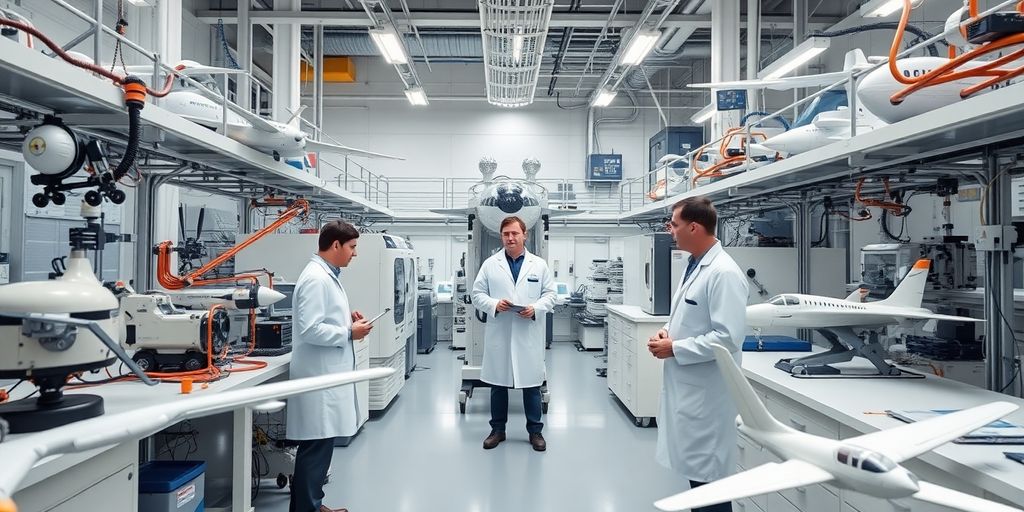Germany is set to establish a new high-tech ministry dedicated to research, technology, and aerospace, as outlined in a coalition agreement released by the incoming government. This significant move marks a pivotal shift in the country’s approach to scientific governance and innovation.
Key Takeaways
- A new ministry will focus on research, technology, and aerospace, separating these areas from education.
- The coalition agreement emphasizes support for cutting-edge fields like AI, quantum technologies, and fusion energy.
- The CSU party will lead the new ministry, with Dorothee Bär expected to be appointed as minister.
- The government aims to attract international talent through a new program called "1000 Minds."
- There are concerns about funding for new initiatives, as budget estimates have not been provided.
New Ministry Structure
Under the coalition agreement, the existing Ministry of Research and Education will be divided. The new ministry will oversee:
- Research
- Technology
- Aerospace
This restructuring is the first of its kind in three decades, reflecting a modernized approach to managing these interconnected fields. Georg Schütte, CEO of the Volkswagen Foundation, expressed optimism about this realignment, stating that it brings together areas that are inherently linked.
Strategic Priorities
The coalition agreement outlines several scientific priorities for the new government, including:
- Artificial Intelligence
- Quantum Technologies
- Biotechnology
- Microchip Development and Production
- Fusion Energy
- Personalized Medicine
- Oceans Research
- Sustainability Research
The government has set an ambitious goal to develop the world’s first fusion reactor in Germany, showcasing its commitment to leading in innovative technologies.
Funding and Budget Concerns
While the agreement highlights various scientific initiatives, it lacks specific budget allocations. Observers have raised concerns about how these new programs will be financed. However, the coalition has committed to increasing the budgets of Germany’s main research organizations by 3% annually through 2030, which may provide some financial stability.
Commitment to Scientific Freedom
In a section addressing scientific freedom, the agreement emphasizes that funding decisions will be based on science-driven criteria. This is particularly relevant in light of recent trends in other countries where funding for certain research areas has been cut. The government aims to safeguard important scientific data and ensure its accessibility worldwide.
Attracting International Talent
To maintain Germany’s status as a leading destination for research and innovation, the government plans to launch the "1000 Minds" program. This initiative aims to attract international talent, making it easier for researchers from abroad to work in Germany. This move is seen as crucial in an era of increasing global polarization.
Military and Defense Research
The coalition agreement also acknowledges the role of science in enhancing Germany’s military and defense capabilities. Plans include expanding peace and conflict research and fostering collaboration between public institutions, private companies, and the military. This shift has been sensitive in Germany, where many universities have historically avoided military-related research.
In conclusion, the establishment of a new high-tech ministry in Germany represents a significant step towards fostering innovation and research in critical fields. As the government prepares to implement these changes, the focus will be on ensuring adequate funding and attracting top talent to maintain Germany’s competitive edge in the global scientific landscape.
Sources
- Germany to create ‘super–high-tech ministry’ for research, technology, and aerospace | Science, Science | AAAS.

Founder Dinis Guarda
IntelligentHQ Your New Business Network.
IntelligentHQ is a Business network and an expert source for finance, capital markets and intelligence for thousands of global business professionals, startups, and companies.
We exist at the point of intersection between technology, social media, finance and innovation.
IntelligentHQ leverages innovation and scale of social digital technology, analytics, news, and distribution to create an unparalleled, full digital medium and social business networks spectrum.
IntelligentHQ is working hard, to become a trusted, and indispensable source of business news and analytics, within financial services and its associated supply chains and ecosystems











